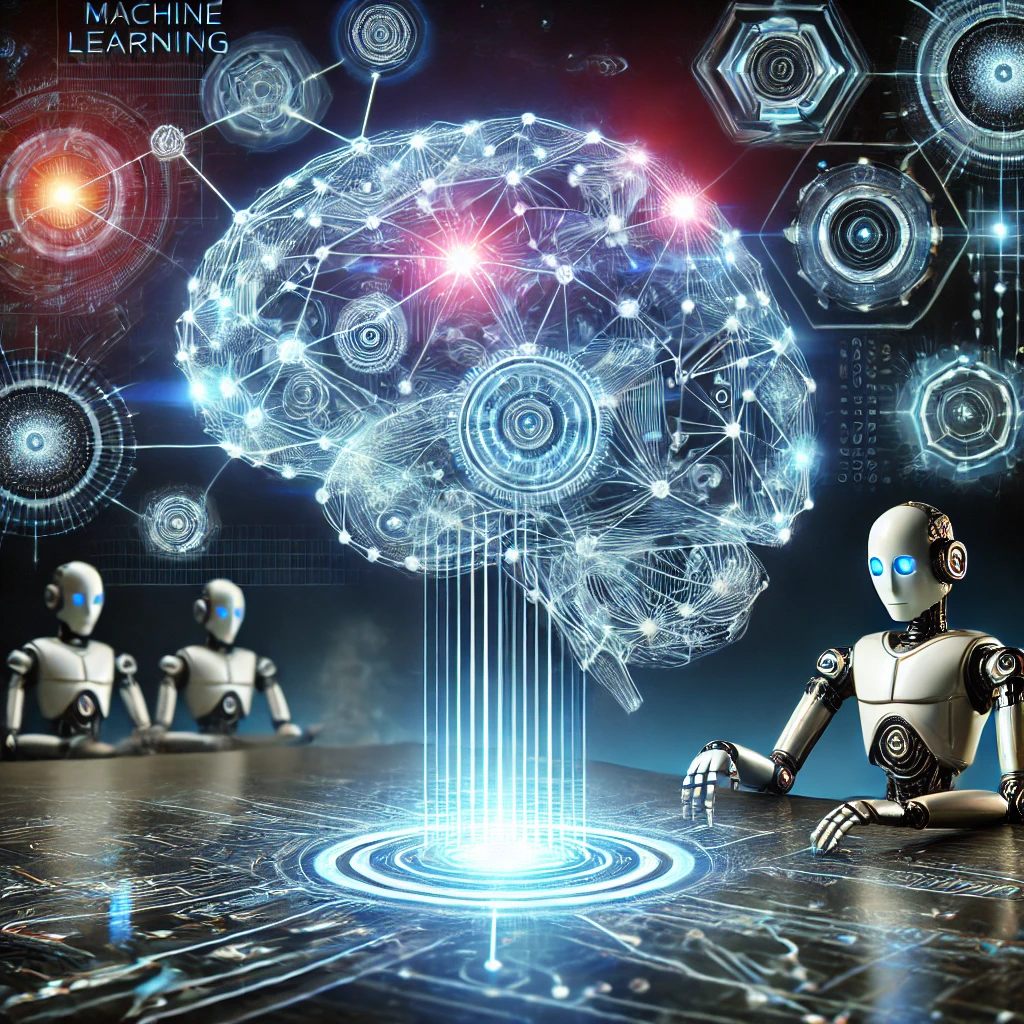Introduction to Machine Learning
Machine Learning (ML) is revolutionizing industries by enabling systems to learn from data and improve over time without explicit programming. As we move into 2025, ML is evolving with new advancements, making it more powerful and accessible.
In this blog, we’ll explore the latest ML trends, applications across various industries, challenges, and what the future holds.
Latest Trends in Machine Learning (2025)
-
Automated Machine Learning (AutoML):
- AutoML simplifies model development, reducing the need for deep technical expertise.
- Companies are leveraging AutoML to build predictive models faster and more efficiently.
-
Explainable AI (XAI):
- As AI decisions impact industries like finance and healthcare, XAI ensures transparency in ML models.
- It helps build trust by providing insights into how AI makes decisions.
-
Federated Learning:
- Privacy-focused ML that trains models without sharing raw data.
- Popular in industries like healthcare and banking where data security is crucial.
-
AI Ethics & Bias Mitigation:
- AI fairness and ethical AI frameworks are gaining attention to eliminate biases in algorithms.
- Governments and organizations are implementing stricter regulations.
-
Quantum Machine Learning (QML):
- Combining quantum computing and ML to solve complex problems at an unprecedented speed.
- Still in its early stages but has huge potential.
Key Applications of Machine Learning in 2025
1. Healthcare
- AI-driven diagnostics and personalized treatment plans.
- Predictive analytics for early disease detection.
2. Finance
- Fraud detection and risk assessment using ML models.
- Algorithmic trading for stock market predictions.
3. E-commerce & Retail
- Personalized recommendations based on user behavior.
- Inventory optimization through demand forecasting.
4. Cybersecurity
- ML models identifying and preventing cyber threats in real-time.
- AI-driven authentication and fraud detection.
5. Autonomous Vehicles
- Self-driving technology improving through deep learning.
- AI-powered traffic optimization and smart city integrations.
Future of Machine Learning
Machine Learning is expected to become even more automated, ethical, and integrated into everyday applications. With increasing adoption, ML will play a key role in smart cities, robotics, and AI-driven decision-making across industries.
Companies investing in ML now will be ahead of the curve in leveraging data-driven insights and automation.
Challenges & Ethical Considerations
- Data Privacy Concerns: Stricter regulations like GDPR and CCPA will shape how ML handles user data.
- Bias in AI Models: Addressing algorithmic biases is crucial for fairness in AI-driven decisions.
- Computational Power Needs: Advanced ML models require high-end GPUs and cloud computing, increasing costs.
FAQs
🔹 What is the future of Machine Learning?
The future of ML includes automation, ethical AI, quantum computing, and improved real-world applications.
🔹 How is ML used in daily life?
From voice assistants (Siri, Alexa) to personalized recommendations (Netflix, Amazon), ML powers many aspects of daily tech use.
🔹 Is AI the same as ML?
No. AI is the broader concept of machines mimicking human intelligence, while ML is a subset focusing on data-driven learning.
🔹 What industries benefit the most from ML?
Healthcare, finance, e-commerce, cybersecurity, and transportation are among the top industries using ML for innovation.







